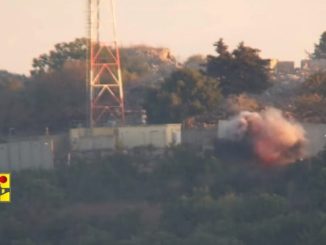
“It’s tragic what’s going on. There are obviously stresses, and the real issue then is how they might interact with some still quite stretched markets in places.”
The Bank of England is monitoring the escalating crisis in the Middle East “extremely closely”, amid growing fears that a worsening conflict between Iran and Israel could severely disrupt global oil supplies and trigger a 1970s-style energy shock, The Guardian has reported.
In an interview with the paper, the Bank’s governor, Andrew Bailey, warned that while the central bank remains vigilant, there were limits to what can be done to stabilize oil prices if the situation “got really bad”.
Highlighting the fragility of the global economy in the face of geopolitical turmoil, he said “Geopolitical concerns are very serious.”
Oil prices rose by three percent following this week’s invasion of southern Lebanon by Israeli forces and Iran’s retaliatory ballistic missile attack on Tel Aviv.
Bailey said, “It’s tragic what’s going on. There are obviously stresses and the real issue then is how they might interact with some still quite stretched markets in places.”
Potential to Escalate
Market concerns are mounting over the potential for the conflict to escalate and disrupt crude supplies from the region, a key source of global energy.
“Geopolitical concerns are very serious,” Bailey said. “It’s tragic what’s going on. There are obviously stresses, and the real issue then is how they might interact with some still quite stretched markets in places.”
‘It’s tragic’: Bank of England governor watching Middle East crisis closely https://t.co/asaBiXJZpG
— The Guardian (@guardian) October 3, 2024
Bailey noted that since October 7, the past year has not seen a sharp spike in oil prices, which has been a relief for monetary policymakers.
“From the point of view of monetary policy, it’s a big help we haven’t had to deal with a big increase in the oil price. But obviously we’ve had that experience in the past, and in the 1970s, the oil price was a big part of the story,” Bailey said, referring to the dramatic rise in oil prices during that decade, which caused significant economic disruption.
He acknowledged, however, that the situation remains volatile, saying “We watch it extremely closely to see the impact of the latest news.
“My sense from all the conversations I have with counterparts in the region is that, for the moment, there is a strong commitment to keep the market stable. But there’s also recognition that there’s a point beyond which that control could break down if things got really bad.”
Credit Rating Lowered
Global credit ratings agency Standard & Poor’s (S&P) downgraded Israel’s long-term rating from ‘A+’ to ‘A’ on Tuesday amid the escalating conflict.
Following a similar move by Moody’s last week, the rating agency cited risks to Israel’s economy and public finances from the ongoing warfare with Hezbollah and a possible conflict with Iran.
“We now consider that military activity in Gaza and an upsurge in fighting across Israel’s northern border — including a ground incursion into Lebanon — could persist into 2025, with risks of retaliation against Israel,” S&P said. “The latter in particular has been highlighted by a missile attack on Israel by Iran at the beginning of October.”
Hezbollah has announced that it had repelled several Israeli infiltration attempts into Lebanese territory since Tuesday, killing and wounding a number of soldiers and destroying several tanks.
This comes at the heels of a massive Iranian attack that targeted military bases across Israel and, per the admission of the Israeli media and military, resulted in serious damage.
(Anadolu, PC)








Destabilization 101.
Yes Bailey, it is ‘tragic’ what’s going on and even tragically horrifying for you and your ilk when the Petro dollar collapses. I hope you crowd are learning Mandarin.